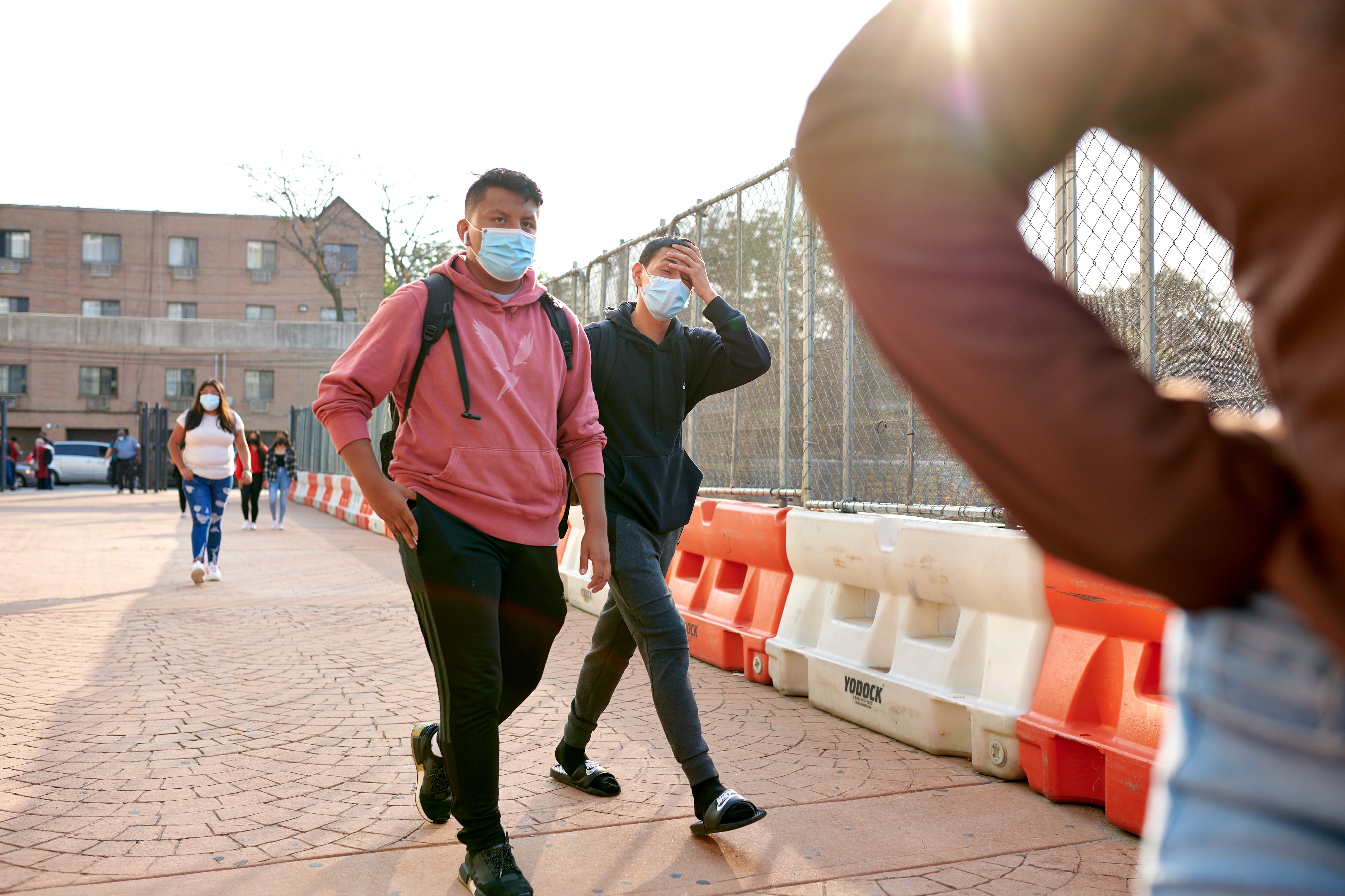New York City public school students and staff must continue to wear masks in school, despite a state judge’s ruling on Monday that voided a statewide mask mandate that applied to indoor settings including schools.
Some school districts across the state immediately lifted their mask mandates, even as state education officials asserted that the requirement still stands while the decision is appealed. On Tuesday afternoon, an appeals court judge restored the mask mandate while the appeal is considered.
But even if the state mandate is ultimately withdrawn, city officials said they can still require face coverings in schools on their own and plan to continue doing so for now.
“Mandatory masking has been DOE policy since before the state adopted its mandate, so this decision has no immediate impact on New York City schools,” said Nathaniel Styer, an education department spokesperson.
Mayor Eric Adams suggested in a radio interview that the localities now lifting mandates are making a “big mistake.”
Still, the city’s education department sent mixed messages to principals on Tuesday morning about whether the city changed its policies about whether students could be punished for refusing to wear a mask.
Just before 9 a.m. on Tuesday, First Deputy Chancellor Dan Weisberg wrote in an email to principals that “if students do not follow DOE’s Face Covering guidance, schools should note the family’s objection and not take disciplinary action at this time.”
The education department’s current face covering guidance allows students to be disciplined “where there is egregious noncompliance” in mask wearing and only after less punitive steps have been taken to encourage students to follow the masking policy. Parents can be asked to pick up their children and students can be suspended if they don’t comply, according to the guidance.
In a second email to principals just hours later, Weisberg appeared to backtrack and noted the current rules on enforcing face coverings among students were still in effect.
Styer did not answer a question about the conflicting emails and whether students could still be disciplined for refusing to wear a mask.
Debates about mask mandates have flared in New York and across the country in part because mask requirements come with tradeoffs. Students and educators may struggle to hear each other while masked and keeping them on can be a challenge for some students with disabilities or those with certain health conditions. But withdrawing mask mandates may discourage some families from sending their children to school, especially as the city has seen a surge in infections due to the omicron variant.
There is surprisingly little rigorous evidence about the extent to which masking in schools prevents transmission of the coronavirus. But there is stronger evidence in other settings that surgical and other high-quality masks, such as KN95s, can reduce transmission.
New York City has committed to providing school staff with one KN95 mask per week through January. City officials did not immediately say if that would continue next month. Schools typically offer surgical masks to students if they don’t have a mask of their own.







